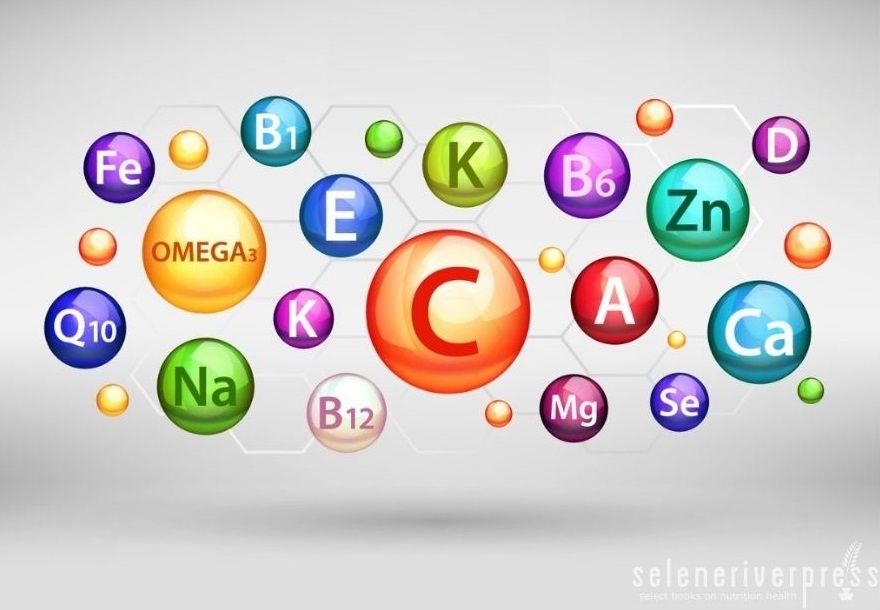How many of us think that moodiness is simply part of our personality? It seems that we are reared with this myth, unfortunately blaming it on poor Aunt Jane or another of our family members who were also moody. Sound familiar?
Allow me to set the record straight and dismiss the notion that moodiness is inherited. Instead, it has more to do with deficiencies caused by poor brain nourishment. If you are lacking in important minerals, this may be keeping your mood in a constant state of fogginess, depression, low level anger, disappointment, low self-esteem, insomnia, and numerous other mental conditions.
The medical term is brain-chemistry imbalance, but I describe this constant state of silent, sad contemplation as having a “broody brain.” If this affects you, read on and see how you can change your moods—and thereby your life—with the right minerals. (You may also want to read another interesting blog post I wrote called “Be Happy—No Matter What!”)
Macrominerals and Trace Minerals
Minerals are essential for many of the functions of the body, including our bone, muscle, heart, and brain health. They are also essential for making enzymes and hormones.
There are many types of minerals, but in this blog post I will be discussing biological-medical types, categorized as macrominerals and trace minerals. Our bodies need a higher amount of macrominerals (such as calcium, phosphorus, magnesium, sodium, potassium, chloride, and sulfur) and a smaller amount of trace minerals (such as iron, manganese, copper, iodine, zinc, cobalt fluoride, and selenium).
The University of Michigan has created two charts that offer a comprehensive look at both of these mineral groups and their corresponding food sources, which I do not have enough room to cover in depth in this article. However, please note: these charts recommend soy milk and soy products, which I caution you not to eat. (You can learn more about the dangers of soy in this article from the Weston A. Price Foundation.
Using Hair Analysis to Discover Mineral Deficiencies
You may have heard about hair analysis, but you may not understand how much useful information it can give you regarding your health, if you have time for it at all. As a matter of fact, speaking to your holistic practitioner about this should be among the first things you do when you’re experiencing any health issue. Let’s talk a bit about why that is and how you can go about getting one.
What Is Hair Analysis?
According to HairAnalysisReport.com, “Hair analysis has been used more extensively for the past 60 years to study minerals for soil science, plant nutrition, animal nutrition, and human nutrition. Researchers used this early technology to gain a better understanding of how macro and especially trace minerals in the soil or a lack of these minerals in the soil affected the health of plants, animals, and humans.” This article goes on to describe hair analysis essentially as “a hair tissue mineral analysis or a tissue biopsy.” You can learn a great deal more by reading the full article.
Additionally, visit Analytical Research Labs for a referral to find a practitioner who offers hair analysis in your area. Many Standard Process practitioners also have the ability to do a hair analysis. Click here to find a practitioner near you.
Standard Process Supplement Recommendations
For mineral supplementation, Standard Process has a wide array of mineral supplements, a few of which I’ve listed below. It’s very important to check with your medical doctor or holistic practitioner to be sure you don’t have any health conditions that would limit certain foods, such as potassium-rich foods in the case of chronic kidney disease or foods containing iron in the case of hemochromatosis, a serious liver disorder. Ask your chiropractor or holistic practitioner to determine which of the following natural mineral containing supplements would be best suited for your condition. By clicking the link you can see what they contain and what they can do to help your overall mood health.
Calcium: The Most Abundant Mineral in Our Body
According to Dr. Lowell Keppel, calcium is the #1 mineral we most need. He explains that there is more calcium in the body than all other minerals combined, and it’s involved with everything from bone building to mobilizing your white blood cells. A lack of calcium is also the leading cause of muscle spasm. Dr. Keppel recommends Calcium Lactate from Standard Process as it has the exact ratio of five parts calcium to one part magnesium, which is essential. Read my blog post “Let’s Take a Closer Look at Calcium” to learn why the right calcium supplement is so important.
The Fourteen Super Foods
For optimal health, you should include in your diet the fourteen super foods recommended by Sally Fallon Morrell, president of the Weston A. Price Foundation. I also strongly suggest considering a membership to the Foundation, where you will be taught how to find, cook, and eat some of the most mineral-rich and nutrient-dense foods in the world. (With your membership you will also receive their quarterly journal, Wise Traditions.)
[xyz-ihs snippet=”Begin-Authors-Note”]Afterthoughts from the Traditional Cook
Delicious
We all enjoy delicious food,
Makes us happy, fixes our MOOD.
It’s all about the juicy taste,
Doesn’t matter, where the food is placed.
We should consider, nutritional support,
We shall need it, if we engage in a sport.
Energy; food provides—plenty
Need a bit more, if we’re over twenty.
A great dish, we should all savor,
Eat slowly, as we taste the flavor.
Choose our very favorite cuisine,
Is it red? Or is it green?
—By tree.cards (emphasis mine)
Disclaimer from Maria Atwood, CNHP: I am a Certified Natural Health Professional, CNHP, not a medical doctor. I do not diagnose, prescribe for, treat, or claim to prevent, mitigate, or cure any human diseases. Please see your medical doctor or health practitioner prior to following any recommendations I make in my blog posts or on my website.
Images from iStock/SiberianArt (main), SIphotography (man), piotr_malczyk (food).





